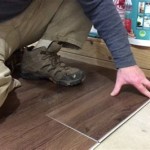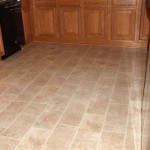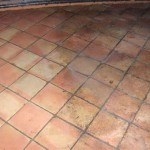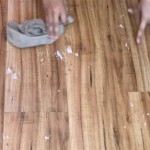Making Basements Waterproof: What You Need To Know About Flooring
When it comes to waterproofing your basement, there are a number of important factors to consider, including the type of flooring you choose. The wrong flooring can allow water to seep into your basement, leading to mold, mildew, and other problems. Here's what you need to know about choosing the right flooring for a waterproof basement:
## 1. Choose a Waterproof MaterialThe most important factor to consider when choosing flooring for a waterproof basement is the material. Not all flooring materials are created equal when it comes to waterproofing. Some materials, such as carpet and wood, are more susceptible to water damage than others. For a waterproof basement, it's best to choose a material that is naturally waterproof, such as:
In addition to choosing a waterproof flooring material, it's also important to install a vapor barrier. A vapor barrier is a layer of material that prevents moisture from rising from the ground and into your basement. Vapor barriers are typically made from polyethylene or plastic sheeting. They are installed on the floor before the flooring material is put down.
## 3. Seal the JointsOnce you have installed your flooring material and vapor barrier, it's important to seal the joints. This will prevent water from seeping through the cracks and crevices. You can seal the joints with caulk, sealant, or waterproof tape.
## 4. Keep Your Basement DryEven if you have chosen the right flooring and installed it properly, it's important to keep your basement dry to prevent water damage. This means keeping the humidity levels low and avoiding flooding. You can use a dehumidifier to keep the humidity levels down and install a sump pump to prevent flooding.
## 5. Inspect Your Basement RegularlyOnce you have waterproofed your basement, it's important to inspect it regularly for signs of water damage. This will help you to identify and fix any problems early on, before they cause serious damage. Look for signs of water stains, mold, or mildew.
## ConclusionBy following these tips, you can choose the right flooring for your waterproof basement and keep your basement dry and free from water damage. A waterproof basement is a valuable asset to any home, providing extra space for storage, recreation, or even living space.

What To Know About Waterproofing A Concrete Basement Floor

The Basics Of Basement Waterproofing 5 Things To Know

What To Know Before Waterproofing A Basement Diy Network

Basement Waterproofing Methods A Complete Guide Ultratech

Tips For Waterproofing Your Basement

Waterproof Your Basement Before You Finish It Basements Plus

Best Flooring For Basements That Flood Try Waterproof Vinyl

Waterproof Flooring For Basements Home Pros

Diy Basement Waterproofing Waterproof Your Walls And Flooring Life S Dirty Clean Easy

Best Basement Flooring Options Liquidators
See Also







